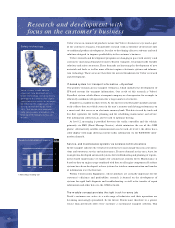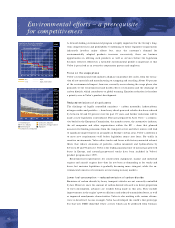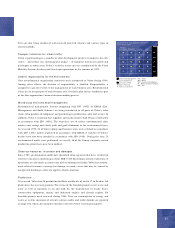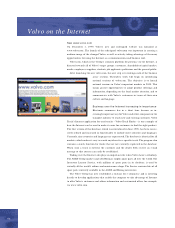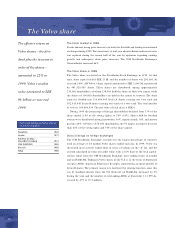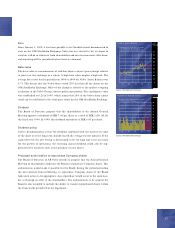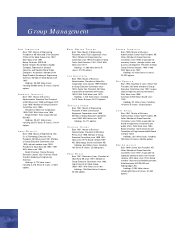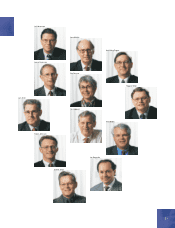Volvo 1999 Annual Report Download - page 47
Download and view the complete annual report
Please find page 47 of the 1999 Volvo annual report below. You can navigate through the pages in the report by either clicking on the pages listed below, or by using the keyword search tool below to find specific information within the annual report.
45
Volvo’s preparations for the EMU and the euro
Member of EMU
Non-EMU members
EU countries
Internal currency within the EM U area
Volvo has decided to use the euro as the internal currency for all operations in
countries within the Economic and Monetary Union (EMU), beginning January 1,
2001. All internal transactions, accounting and reporting will be changed from national
currencies to the euro.
Volvo has analyzed the effects of an internal changeover to the euro. The transition
process will take place during 2000. In order to assure a smooth transition and to
minimize risks, Volvo has organized an internal project involving all business areas that
is continuously monitoring activities and costs.
The cost of Volvo’s changeover to the euro within the EMU area is estimated to less
than 0.1 percent of sales. The dominant portion of these costs are being incurred in the
IT area.
After having established the euro as the internal currency within the EMU area,
administrative cost savings can be realized within distribution, inventory control and
marketing. Internal foreign exchange differences will disappear since exchange rates
within the EMU are fixed, and there will be no difference between a forecast rate and
the actual rate. Cross-border transactions will be conducted in the same currency.
Treasury operations
Within the treasury function, currency hedges for EMU currencies have been denomi-
nated in euro since the start of the EMU. Significant gains in efficiency have been
realized in that eleven currencies have become one. The policy for currency hedging is
being reviewed.
The EMU has also contributed to that Volvo has been able to centralize European
financing operations. Volvo issued substantial bond loans in euro on favorable terms in
1999. During the first half of 2000 Volvo is working to introduce a central account for
transactions in euro.
External and other relations
The changeover to the euro in external relations with customers, suppliers, financial
markets, government authorities and others within the EMU area is occurring
gradually over the three-year period up to and including 2001. The date for the
changeover is set following agreement by the parties involved.
Volvo employees within the EMU area will be paid in euro in conjunction
with the introduction of bills and coins in 2002. Local exceptions may be made
where required by law, or following agreement with employee organizations.
Volvo employees in certain countries are already receiving pay specifications in
both the national currency and in euro.
Volvo has indicated its support of the EMU and the euro. In Volvo’s view, the
euro will increase competition in the European single market, which is benefi-
cial for customers.







